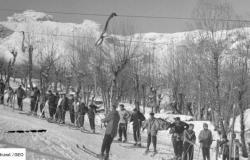By Pierre Serna, historian, researcher at the Institute of History of the French Revolution (IHMC)
“No one shall be disturbed for their opinions, even religious ones, provided that their manifestation does not disturb the public order established by law”, according to article 10 of the Declaration of Human Rights, and article 11 completes it: “The free communication of thoughts and opinions is one of the most precious rights of man: every citizen can therefore speak, write, print freely, except to answer for the abuse of this freedom in the cases determined by the law. » As in almost all articles, a major advance in the expression of a freedom so dearly won against royal arbitrariness in 1789 is limited by the question of public order or the law not to be infringed, founding and both weakening freedom of expression. At the time, fanatics were the majority members of the clergy who were determined to ban and impose censorship against free thinkers. But not only that, the king’s men, preservers of order, also take care to apply censorship against those who denounce political injustices. For them, public order is the conservation of social order and its inequalities.
When remembering the massacre of the editorial staff of Charlieten years after the killing, what about freedom of expression? It is everywhere threatened and in decline in all countries, starting with democracies, now illiberal and liberticidal. The political cartoonist for the “Washington Post”, Ann Telnaes, was banned from a drawing in which the boss of Amazon, Jeff Bezos, in adoration of Trump, offers her a bag of gold. She only denounced with her talent, her humor and her art, the way in which American billionaires try to buy power and its favors. Political laughter seems more and more stigmatized, too disturbing. Its impropriety is an entirely political construction. Two comic strips show this nagging decline in freedoms both in France in the form of self-censorship, or in the form of repression in Türkiye. In the first case, Aurel rightly remarks that everyone is “Charlie when they feel like it” (1). In a lively and intelligent way, the cartoonist shows the implacable logic which brings down the place of drawings in the political press and the imperatives of a new neo-reactionary morality at work. The costs of the press, poorly paid cartoons, the over-representation of disinformation media from the Bolloré group among others, condemn the corporation of satirical cartoonists in the medium term. The cartoonists are crushed between the morality of an ever more intransigent right, and a new left-wing culture which is transforming and struggling to find its laugh, now also refusing to laugh at everything. On the other side of the Mediterranean basin, in Turkey, Ersin Karabulut (2), in a very effective graphic style, recounts the nightmarish adventure of her satirical newspaper “Uykusuz” (insomnia) and the rage of the supporters of a strict religious order to want to destroy any critical expression against the police, regressive and undemocratic power of Erdogan. With finesse, the author shows how, in a country which has always known the satirical press, the simple fact of sketching society without the original desire to build a political newspaper, led the editors of the magazine to become targets to be shot down. a power enraged by laughing at him and his ridiculous postures. In the United States, in France, in Turkey, everywhere, it is high time to refuse any form of limitation on freedom of expression…
(1) “Charlie whenever they like”, Aurel, Futuropolis
(2) “Worried Istanbul Newspaper”, Ersin Karabulut, Dargaud






